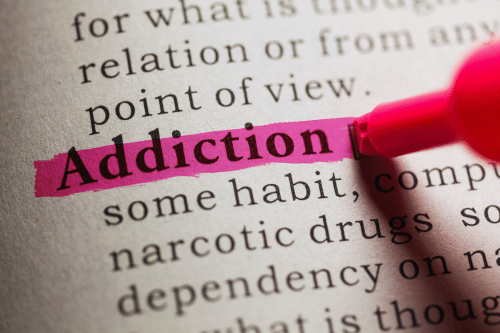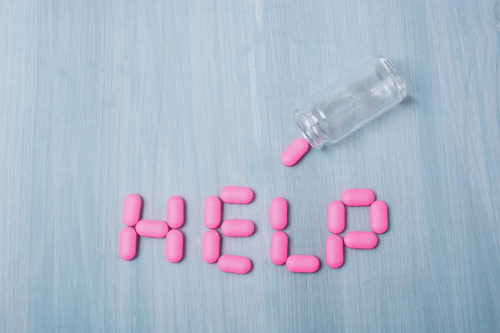

Therapy and addiction are tightly linked in the field of substance abuse treatment. From drug withdrawal to relapse prevention, therapy plays a central role in helping individuals understand their behavior and develop healthier coping mechanisms. At Sullivan Recovery in Mission Viejo, we integrate a wide range of treatment programs and therapeutic tools to support recovery from alcohol and drug addiction.
Substance abuse often begins as a behavioral response to stress, unresolved trauma, or intense emotion. These emotional triggers can drive individuals to misuse substances like alcohol, methamphetamine, or benzodiazepines as coping mechanisms. Over time, repeated use of these substances changes the brain, reinforcing addictive behavior and creating a cycle of substance dependence.
Therapy addresses the root causes of this cycle by identifying thought patterns and emotional triggers linked to drug use. Through structured approaches like cognitive restructuring, motivational enhancement therapy, and the transtheoretical model, therapy equips the patient to challenge unhealthy habits and pursue abstinence. At Sullivan Recovery, these therapy models are applied across our outpatient treatment programs to support those battling opioid use disorder, amphetamine misuse, and prescription drug addiction.
Therapy and addiction recovery go hand-in-hand when treating alcohol, stimulants, or opioids, each of which poses unique risk factors and withdrawal challenges. Whether participating in our php drug treatment or receiving mat drug treatment with naltrexone, methadone, or buprenorphine, therapy helps the patient manage drug withdrawal, build confidence, and reestablish control over their daily behavior.
We implement evidence-based therapies such as contingency management, music therapy, art therapy, and biofeedback to help individuals process feeling, build motivation, and learn adaptive coping strategies. These methods support overall health and have demonstrated high efficacy in preventing relapse and sustaining long-term sobriety. Therapy also provides crucial education about addiction, teaches social skills, and helps patients develop a goal-oriented approach to managing their recovery.

Therapy builds motivation, develops coping skills, and encourages long-term behavioral change. Through individual and group counseling, patients explore emotions like shame, fear, and guilt—common drivers of substance use and addictive behavior. These therapy sessions offer a safe space for processing difficult feelings and learning emotional regulation techniques that strengthen resilience.
Clients in our outpatient rehab programs work closely with licensed health professionals to identify personal triggers, restructure negative thought patterns, and implement behavior change strategies rooted in the transtheoretical model. We also provide addiction and marriage counseling for couples impacted by alcohol, stimulants, or other substances, helping them rebuild trust and mutual understanding. Our therapies are rooted in clinical efficacy and tailored to support each patient’s unique recovery goal.
For clients managing opiate, amphetamine, benzodiazepine, or methamphetamine addiction, combining medication with therapy improves treatment outcomes. At Sullivan Recovery, our MAT drug treatment approach uses FDA-approved medications like buprenorphine, methadone, and naltrexone to stabilize patients and reduce cravings. These medications are especially helpful during the intense stages of drug withdrawal, where relapse risk is highest.
With cravings managed, patients can fully engage in behavioral therapies such as contingency management, cognitive restructuring, and motivational enhancement therapy. These therapeutic tools help the patient address emotional imbalances, manage stress, and build new habits that support long-term sobriety. This dual strategy—medication and therapy—forms the foundation of our narcotic withdrawal treatment plans, helping clients move through recovery with greater confidence, skill, and support.
Community involvement is critical to successful recovery. Group sessions offer peer support, helping individuals feel less isolated in their journey. Sharing experiences with others who understand promotes empathy, confidence, and social skills.
We facilitate group therapy sessions where patients can openly talk about their experience with substances, build interpersonal relationships, and learn from others’ recovery journeys. This information exchange helps reduce risk of relapse and reinforces abstinent behavior.
Our treatment programs extend beyond talk therapy. We incorporate yoga, meditation, music, and exercise into our care. These practices support mental health, physical recovery, and emotional regulation.
Art therapy and music therapy tap into creativity to process pain and build self-awareness. These alternative therapies are especially helpful for patients who struggle to express their feeling through words alone.

Therapy plays a critical role during drug withdrawal, when cravings, mood swings, and emotional instability are at their peak. Whether you’re detoxing from alcohol, stimulants, or opioids, therapy offers a structured safe space for emotion regulation and stress management. These moments of vulnerability often bring feelings of fear, shame, and despair, which can be addressed through specialized drug withdrawal therapies.
Our clinicians at Sullivan Recovery use techniques such as desensitization, cognitive restructuring, and emotional regulation training to help patients regain mental health and behavioral stability. We also incorporate motivational enhancement therapy, music therapy, and meditation as supportive tools during the detox phase. These therapies are vital for relapse prevention and help individuals develop healthy coping strategies early in recovery, improving their experience with mat drug treatment and long-term success in our treatment programs.
Substance abuse impacts the entire family, not just the individual struggling with addiction. That’s why Sullivan Recovery emphasizes the value of counseling for parent education, boundary setting, and improving interpersonal relationships. Our addiction and marriage counseling sessions help family members understand how to support loved ones during their recovery from substance dependence, while also healing emotional wounds.
Involving parents and spouses in therapy increases the chance of long-term sobriety, improves motivation, and strengthens the overall support network needed to avoid relapse. Our programs explain addiction as a disease, using current research and education to break stigma and misinformation. With the help of a licensed health professional, families build empathy, restore trust, and create a more stable home environment—vital components in sustaining behavioral and emotional change.
Many clients suffer from both addiction and mental health issues like bipolar disorder. Treating these conditions together is essential. Our clinic provides integrated therapy options that target both diagnoses at once.
Dual-diagnosis therapy addresses the mind, behavior, and mood imbalances that contribute to substance abuse. This kind of treatment program improves quality of life and reduces risk of future addictive behavior.
Therapy also helps patients process shame, fear, and the long-lasting effects of advertising, cultural bias, and misinformation around substance abuse. These emotional barriers often prevent individuals from seeking help and intensify addictive behavior. Through therapy, we help clients explore their inner emotion, identify harmful beliefs, and develop motivation to pursue recovery.
At Sullivan Recovery, we work to reframe each person’s identity from “addict” to “individual in recovery,” reinforcing confidence, self-worth, and resilience. Therapy empowers clients to separate the disease of addiction from their character, reducing self-blame and enhancing emotional regulation. Group and individual therapy sessions offer a safe space for exploring these complex experiences while building understanding, empathy, and long-term behavior change.

Many people hesitate to seek help due to insurance limitations or fear of unexpected costs. At Sullivan Recovery, we partner with most major health insurance providers to ensure individuals can access effective treatment programs without overwhelming financial burdens. We assist in verifying coverage for all levels of care, including PHP drug treatment, MAT drug treatment, and outpatient counseling.
We also offer free alcohol counseling options and flexible resources for those seeking help with alcohol therapy, prescription drug addiction, or other forms of substance dependence. By removing financial obstacles, we help more patients start therapy early—improving health, reducing relapse risk, and saving lives through timely intervention. Access to affordable care is essential in overcoming substance use and reclaiming long-term sobriety.
Ongoing education and research guide every aspect of our treatment philosophy. Our team stays current with systematic reviews of therapy models to ensure we’re offering the most effective therapies for addiction recovery.
We believe in combining clinical experience with evidence-based data to refine our treatment programs. Whether it’s behavioral therapy, MAT, or motivational enhancement therapy, we ensure each approach is backed by data and adapted to the patient’s needs.

Therapy is not limited to early recovery. Ongoing sessions help patients maintain abstinence, reinforce healthy habits, and continue growing. At Sullivan Recovery, therapy evolves as recovery progresses.
From PHP drug treatment to aftercare and alumni services, our programs provide long-term support. We adapt therapy sessions based on the goal, whether it’s emotional growth, behavior change, or relapse prevention.
Therapy and addiction treatment must work hand-in-hand to produce real, lasting recovery. Whether addressing opioid use disorder, alcohol therapy, or stimulant addiction, therapy provides structure, accountability, and emotional healing. Sullivan Recovery’s outpatient programs offer a variety of therapies and support systems that promote physical, emotional, and mental well-being.
If you or a loved one needs help with addiction, our clinic in Mission Viejo offers personalized treatment programs covered by most health insurance plans. Reach out today to start your journey to sobriety and healing.
At Sullivan Recovery, as an in-network provider we work with most insurance plans, such as:
And More
If you or a loved one are struggling with mental health challenges or substance abuse, reach out to Sullivan Recovery today. Our team of compassionate professionals is here to support your journey towards lasting well-being. Give us a call at 949-836-7180.
Yes. Therapy remains effective even after multiple relapses. Each relapse can reveal specific behavior patterns or triggers that therapy can target through improved coping strategies and emotional regulation. With continued support from a licensed health professional, individuals can regain motivation and return to a path of lasting sobriety.
The duration of therapy depends on the individual’s progress, the severity of the addiction, and co-occurring conditions like bipolar disorder or trauma. Some clients benefit from short-term intensive therapy, while others may need long-term involvement through our outpatient programs. Consistency and commitment to treatment programs often lead to better outcomes.
Yes. Many forms of therapy—like cognitive restructuring, motivational enhancement therapy, and even group counseling—can be delivered effectively through secure virtual platforms. Online therapy increases access for patients who face transportation, work, or health insurance barriers while still receiving professional support for substance abuse and emotional regulation.
It’s normal to feel hesitant at first. Therapists are trained to create a safe space where patients can gradually build trust. Alternative methods like art therapy, music therapy, and meditation can also be introduced to help individuals express themselves without relying solely on verbal communication. Over time, these approaches improve emotional expression and reduce fear or shame tied to addiction.